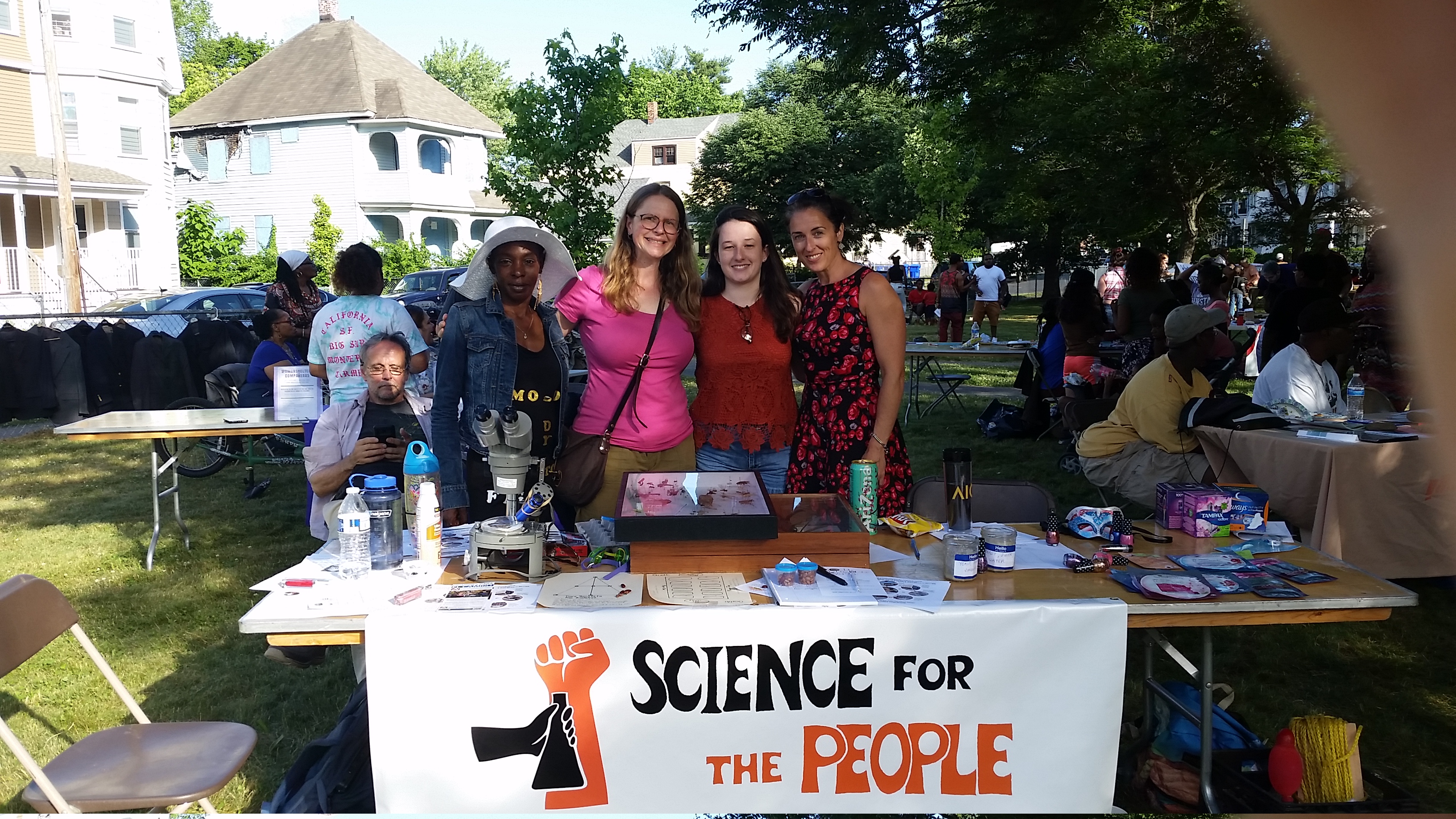
The Science for the People blog periodically publishes reports from our chapters across North America. To find a chapter near you, or to start your own chapter, email sftp.revitalization@gmail.com.
The Western Massachusetts chapter is an eclectic and dynamic group with a core of about ten people who regularly participate and about seventy people on the mailing list. Our greatest strength lies in the diversity of experiences and perspectives we bring to the table, along with the many exciting intersections in our interests. We include community organizers, research scientists, historians of science, teachers, and students/recent alums—and many of us fall into more than one of these categories.
We meet weekly, rotating between the campus of UMass Amherst and the offices of Arise for Social Justice, a grassroots organization in Springfield. This allows us to be plugged into multiple communities and facilitates coalition work, for example with the Springfield Climate Justice Coalition. Public events this year have included a book talk at UMass with political agroecologist Jahi Chappell; a community discussion on mold, housing, and health at Arise; and tabling at two neighborhood gatherings in Springfield.
Many of our meetings include discussion of an article, short story, or video. In addition to reading some of the articles on geoengineering from the new SftP magazine, we often discuss materials related to geology, agro-ecology, space exploration and the militarization of space, and science fiction. We have future plans to continue exploring these and other issues.
Our most sustained campaign to date involves raising awareness and effecting change on the problem of mold, housing, and health—mold is a major factor in the high rate of respiratory illness in Springfield. At the center of this campaign is SftP member Tatiana Cheeks, a Springfield mother who has developed much expertise on the subject as she fights the mold that has caused her son to suffer respiratory illness in their rented apartment. Locating our meetings at Arise has provided many opportunities to learn from community organizers working directly with homeless people and tenants of slum-lords, making our understanding of mold contamination broader and more socially and politically informed.
The other big project that we’ve taken on is a workshop for K-12 teachers on science and social justice, which we hope to offer in the spring. The workshop would provide 15 hours of contact time so that teachers could receive 1 graduate credit and professional development points. We plan to introduce teachers to several conceptual frameworks for seeing the connections among knowledge of self, knowledge of society, and knowledge of nature. These frameworks will help teachers integrate three areas that are often treated separately: STEM, social studies / language arts, and social justice activism. We expect to provide approximately ten practical examples that draw from our diverse areas of expertise, including solidarity science (focusing on the mold campaign), geology in social and political context, agro-ecology and food justice, the ecopolitics of built environments and urban planning, and more.
Our website has recently undergone transformation and better reflects some of the exciting work we’ve been doing: http://westernmass.scienceforthepeople.org. We hope people will come visit us—whether in person or on the web!
